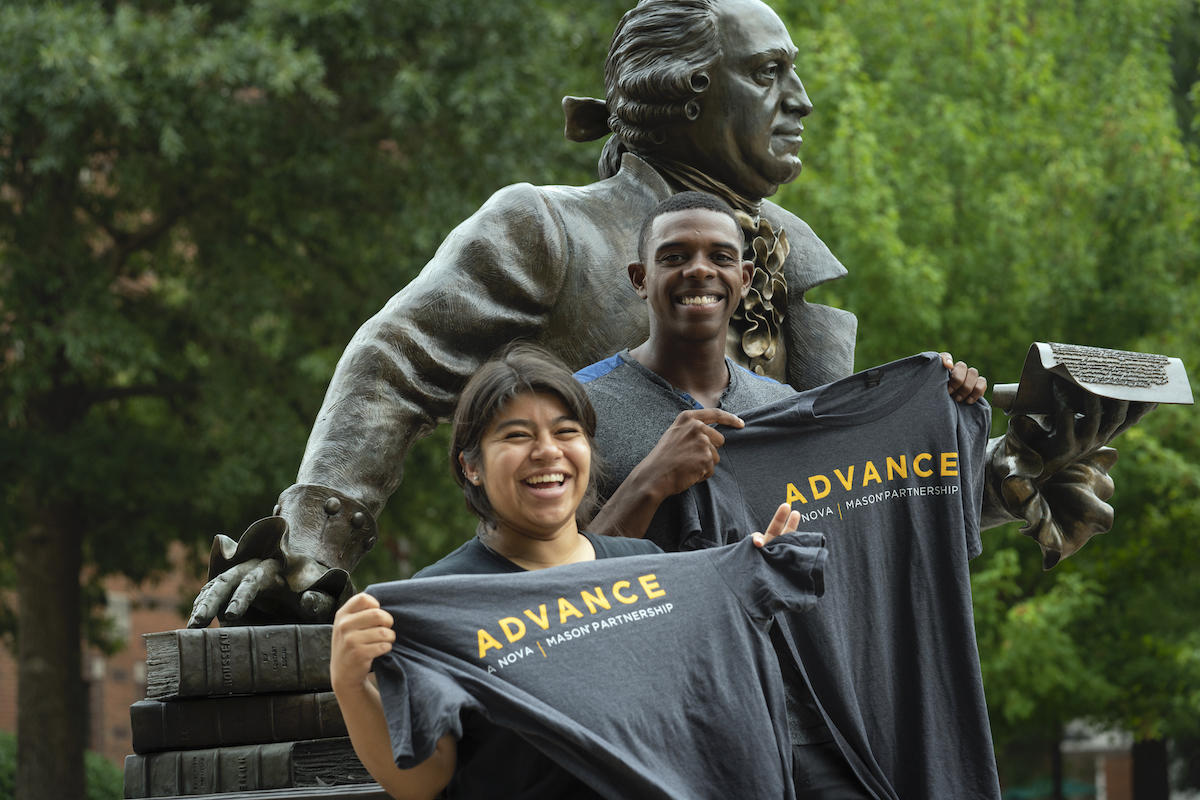An American Council on Education (ACE) Task Force of college and university presidents and chancellors released a report Monday highlighting the ADVANCE Program, a partnership between George Mason University and Northern Virginia Community College (NOVA) as an example of successful collaboration to improve transfer student success.
The ACE task force report, Reimagining Transfer for Student Success, offered recommendations and best practices to higher education leaders on how to modify existing transfer and award of credit practices to support student success. The report described ADVANCE as a program that has welcomed a “remarkable” number of students of diverse and racial socioeconomic backgrounds and improved transfer success by eliminating unnecessary credits, money and time.
“The ADVANCE Program and the partnership generally between NOVA and Mason is a highly successful example of the benefit to students that comes with close coordination between institutions,” said Anne Holton, professor of public policy and education and senior fellow at Mason’s Schar School of Government and Policy, who was named co-chair of the task force while she was interim president of Mason. “Coordination such as you find in the ADVANCE Program provides students with clear structured pathways, helping with their success rate.”
The ADVANCE Program currently has more than 2,000 students enrolled and a retention rate above 80%. Faculty at both Mason and NOVA collaborate to closely design almost 100 structured degree program pathways starting at NOVA, in fields ranging from engineering to visual arts. When a student joins the ADVANCE Program, they are assigned a dedicated success coach who guides them through their entire process of getting both their associate’s and bachelor’s degrees.
“We are delighted to see the ADVANCE Program getting special recognition for the work being done to improve the transfer process and promote student success,” said Janette Muir, associate provost for undergraduate education at Mason. “It has taken great effort, and tremendous goodwill, from both NOVA and Mason, to realize this dream. Students now have clear pathways to follow for just about every major at Mason, and they have a strong support system to help them stay on their selected paths.”
The ADVANCE Program students are about 60% students of color, 61% Pell-eligible and 48% first-generation college students.
“The opportunity for students to continue their education through the process of transferring from community colleges to four-year higher education institutions can be transformative for students,” said Provost Mark R. Ginsberg. “However, a number of impediments have been constraining. ADVANCE is a pioneering innovative program that successfully addresses many of the impediments and also provides important personal support for students.“
The ACE task force report finds that students attempting to transfer to four-year institutions are often stymied by ineffective transfer policies. The report calls on higher education leaders to reduce barriers for the most vulnerable students, enabling them to transfer effectively from community colleges and other institutions to four-year institutions, completing their degrees. The report offers six recommendations, including improving transparency and creating structured pathways between institutions.
“One of the important findings from this report is that students are taking courses that they are not getting credit for either at all or toward their major as they transfer institutions,” said Holton. “The message is that this is a problem that needs addressing because it has equity implications. The recommendations are intended for college presidents who are always looking for ways to improve access to education.”
Listen to an ACE podcast with Anne Holton and Northern Virginia Community College President Anne Kresse about this report.

